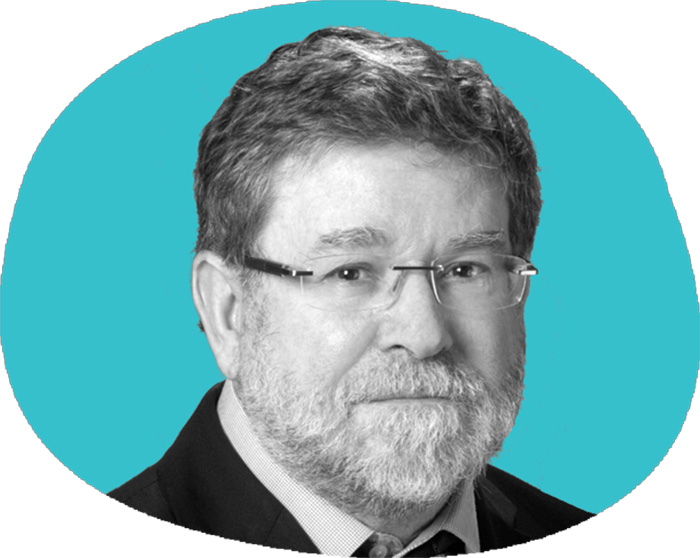
Glioblastoma is the most common brain tumor, and it also has some of the worst survival rates of any type of cancer. The 5-year survival rate is approximately 7%, and the average length of survival for patients is 8 months.
By awarding a grant to an ambitious research project using cancer cell and gene therapy, Alliance for Cancer Gene Therapy (ACGT) is continuing its support of scientists who are trying to find a cure for this brain cancer.
ACGT has finalized a multi-year grant for cell and gene therapy scientist Juan Fueyo, MD, who becomes the newest ACGT Research Fellow and joins an elite list of scientists committed to researching and developing novel cell and gene therapies to treat brain tumors. Cell and gene therapy harnesses the power of the human immune system to destroy cancer cells.
Dr. Fueyo and Candelaria Gomez-Manzano, MD, both of MD Anderson Cancer Center, are co-Principal Investigators in this research project.
“The name says it all, right? Alliance for Cancer Gene Therapy. This is what we do.” — Candelaria Gomez-Manzano, MD, of The University of Texas MD Anderson Cancer Center
ACGT is supporting their efforts to further develop an oncolytic virus therapy to treat people diagnosed with glioblastoma. The therapy has already been tested in a clinical trial and helped 20% of patients live longer, some for as long as three years.
With the help of ACGT’s grant funding, Drs. Fueyo and Gomez-Manzano plan to modify a particular oncolytic virus with the goal of making it work for a larger percentage of patients.
Challenges to treating brain cancer
Brain cancer is often difficult to treat with standard options such as surgery, chemotherapy and radiation. Dr. Gomez-Manzano and Dr. Fueyo both said surgery is challenging due to the delicacy of the organ. Glioblastoma can also grow into areas of healthy brain tissue, making it very difficult to remove without damaging the brain.
“You cannot sacrifice the organ (the brain),” Dr. Fueyo added. “Gliomas, such as glioblastoma, are not metastatic tumors, meaning they don’t spread far away. They never metastasize. … But since it’s in the brain, it’s more difficult to be cured.”
Radiation and chemotherapy can have limited benefits for patients, and they often cause side effects that decrease the patient’s quality of life.
Explaining how the oncolytic virus can fight glioblastoma
Oncolytic virus therapy – also called virotherapy – is a form of immunotherapy that uses viruses to infect and destroy cancer cells. Oncolytic viruses are modified viruses engineered to only infect cancer cells, which can prevent damage to healthy tissue. Once they’re infected by the virus, the cancer cells break apart, which can lead to an immune response.
“When we started to consider virotherapy, we didn’t understand the immune system component,” said Dr. Gomez-Manzano.
She and Dr. Fueyo has been researching oncolytic viruses for brain tumors for decades.
“Now thinking back, it makes sense. When you inject a pathogen, there’s an immune response to the pathogen,” Dr. Gomez-Manzano added.
Dr. Fueyo and Dr. Gomez-Manzano’s oncolytic virus therapy can not only infect and kill brain tumor cells but can also activate the immune system.
“This is important because when you treat a patient with a virus and the therapy works, the immune system eliminates the virus. So there’s no more virus there,” Dr. Fueyo said. “Then suddenly, the immune system is attacking the tumor in a highly regulated process. So it’s being eliminated selectively and with controlled inflammation.”
ACGT’s impact on brain cancer
ACGT’s reputation of funding and advancing cell and gene therapy includes groundbreaking research, FDA approvals for blood cancers, and inspiring stories of patient survival. The foundation’s goal is to transform how all types of cancer are treated and bring cures to patients in need.
“You cannot sacrifice the organ (the brain). Gliomas, such as glioblastoma, are not metastatic tumors, meaning they don’t spread far away. They never metastasize. … But since it’s in the brain, it’s more difficult to be cured.” — Juan Fueyo, MD, of The University of Texas MD Anderson Cancer Center
ACGT has awarded 14 grants totaling $6.75 million for brain cancer specifically. The foundation’s legacy of funding cell and gene therapy research for brain cancer is what inspired Dr. Fueyo and Dr. Gomez-Manzano to apply for funding.
“Your foundation really believes in oncolytic viruses and CAR T cells for solid tumors,” Dr. Fueyo said. “This is something we believe, too, because it’s cutting-edge research.”
“The name says it all, right?” Dr. Gomez-Manzano added. “Alliance for Cancer Gene Therapy. This is what we do.”
Please sign up for ACGT’s mailing list to receive news about other grants, advancements spearheaded by ACGT Research Fellows, and more delivered to your email inbox. Additionally, you can follow ACGT on Facebook for daily posts about cancer cell and gene therapy.



